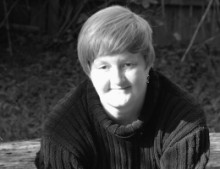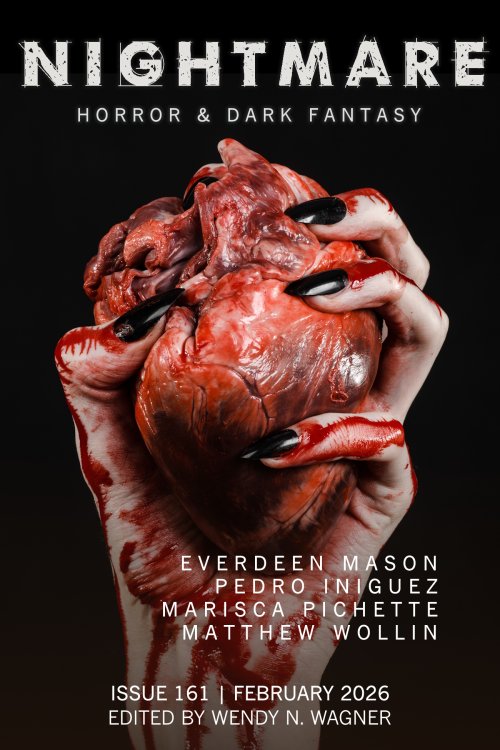“Decorating with Luke” is made all the more chilling by the direct, matter-of-fact tone of the narrative. Tell us something of what inspired this tale of deliberate, calculated horror.
I have no clear conceptual impetus, no fascinating anecdote of the moment of inspiration: just the title. The construction struck me as potentially ambiguous, and from that ambiguity, the story blossomed.
I particularly enjoyed the layered nature of the story. On the surface is the supernatural consequences of Luke’s cruelty nestled within that same cruelty. Below that, the suspicion and lingering fears and doubts of victims reclaiming their lives. Yet I feel that the dark heart of the story is the dull, throbbing ache of the cycle of abuse exquisitely summed up in “for the rest of their lives played drum solos on what was left.” This touches on the all too real nature of abuse, turning our backs on a past that we can never forget. What is it about these everyday horrors that appeals to you as a writer?
As a writer I have always been drawn to stories of abuse, of reactions to abuse, of characters forged from abusive backgrounds, or who experienced abuse outside the home. It might be that this is because I have never been a stranger to the dynamic, or to the wounds that linger for years. Much of the horror genre is drawn from people driven to extremity, and abuse is one of the engines that drives that. (I am happy to say that it is not the only gong I ring, though.)
When writing this story, did you see the narrator as a sympathetic character? Do you think it is possible for characters who have given themselves over to the need for revenge, however justified in their own minds, to ever be sympathetic?
I have always been of the opinion that revenge is a two-edged sword, that merely wishing for it wounds the soul to some extent, though in many cases not as much as the offense that prompts it. The protagonist of this story needs to be fairly twisted to render it the shape of the rest of her life, and I think it makes her a terrible person, albeit one who might not have any choice in the matter, by this point.
There is an ongoing debate in horror circles that women can become even more monstrous than men. You never mention the gender of either character. Was this a deliberate choice? Do you think it matters to the story?
Now, here the author must lay himself bare. Honestly, I could very easily puff out my chest and say, “Yes, you’re right; I cleverly withheld all pronouns so that the protagonist and the person being addressed throughout are not identified as a specific gender, and this involved great pains in composition, and I am so glad you noticed, because all of that is key to the central point, which is . . .” blah, blah, blah. But all of that would be a lie. Honestly, it never occurred to me, not for a single moment, that the titular Luke was anything but a serial abuser of women, or that either the narrator or the target of her monologue was not a woman. Not once. It never entered my head until you asked the question, and I can only say, this is the kind of thing that happens accidentally when the narrator speaks in first person addressing a second unnamed person in second person. That the ambiguity arrived at all is a gift, and I am delighted by it.
Genre is commonly seen as a means of classifying stories for distribution or marketing. As a writer, do you have a favorite? What about as a reader?
I have said that I hop around like a frog on a hot plate. I want to be a purveyor of stories, not genre, which is why it sometimes irritates me that readers who have encountered only a handful of mine think I only operate within an easily-defined range. Honestly: three out of my past four Lightspeed stories were rather silly science fiction, and the stuff I do for Analog ranges from grim adventure to whimsicality of the Bradburian sort. As a reader, I only want to be told a good story, and that is why I read thrillers, westerns, horror, police procedurals, and satire; I write in the same range because I’m the first member of the audience, after all. I want to be surprised, and that includes surprising myself.









